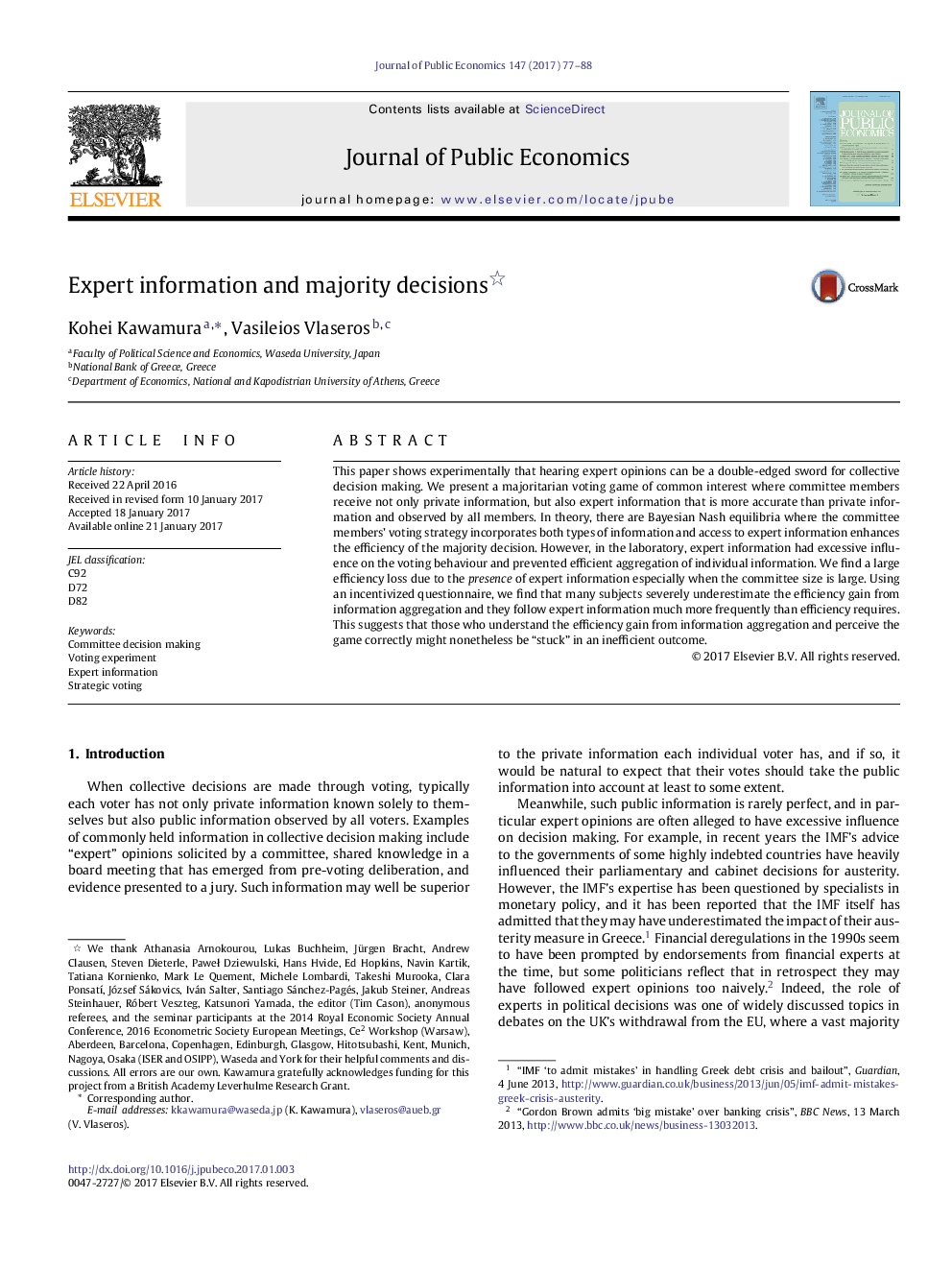| Article ID | Journal | Published Year | Pages | File Type |
|---|---|---|---|---|
| 5101859 | Journal of Public Economics | 2017 | 12 Pages |
Abstract
This paper shows experimentally that hearing expert opinions can be a double-edged sword for collective decision making. We present a majoritarian voting game of common interest where committee members receive not only private information, but also expert information that is more accurate than private information and observed by all members. In theory, there are Bayesian Nash equilibria where the committee members' voting strategy incorporates both types of information and access to expert information enhances the efficiency of the majority decision. However, in the laboratory, expert information had excessive influence on the voting behaviour and prevented efficient aggregation of individual information. We find a large efficiency loss due to the presence of expert information especially when the committee size is large. Using an incentivized questionnaire, we find that many subjects severely underestimate the efficiency gain from information aggregation and they follow expert information much more frequently than efficiency requires. This suggests that those who understand the efficiency gain from information aggregation and perceive the game correctly might nonetheless be “stuck” in an inefficient outcome.
Related Topics
Social Sciences and Humanities
Economics, Econometrics and Finance
Economics and Econometrics
Authors
Kohei Kawamura, Vasileios Vlaseros,
